Do you often have gas, pain, bloating, a feeling of indigestion?
Intestinal gases, or flatulence, are accumulated in the intestine or stomach. They cause bloating and can be expelled from the body voluntarily or involuntarily.
These gases have three sources:
- Most come from the fermentation process of broken-down foods by the gut microbiota
- The others come from air swallowed during swallowing
- and from CO2 released during gastric acid secretion
Some gases can be odorous. This can be due to a overconsumption of meat or fats. Others are odorless and are rather due to a diet high in sugars and refined starches, such as white flour.
Diet, stress, certain medications, and alcohol are the main causes of excess gas production.
I have selected 6 herbal teas, most of them plants with carminative properties. That is, they counteract intestinal gas production and facilitate its elimination, helping you get rid of intestinal gas quickly.
Directions: you can mix all these herbs in equal amounts, and drink 1 cup after each meal. I recommend 1 teaspoon of the blend per 33 cL cup of hot water, to steep covered for 10 minutes.
📚 Read also | Gas, intolerances… A pharmacist has selected the best digestive enzymes
1. Green anise seeds

The seeds of green anise belong to a family of plants widely used as a culinary condiment, the Apiaceae. Their aniseed flavor is unmistakable.
They are among the plants with carminative properties: they prevent the production of intestinal gas and facilitate its expulsion. The European Medicines Agency (EMA) recognizes these properties, as indicated by this official document of the European Pharmacopoeia.
I particularly enjoy green anise seeds, which can be eaten raw or roasted.
2. Sweet fennel seeds
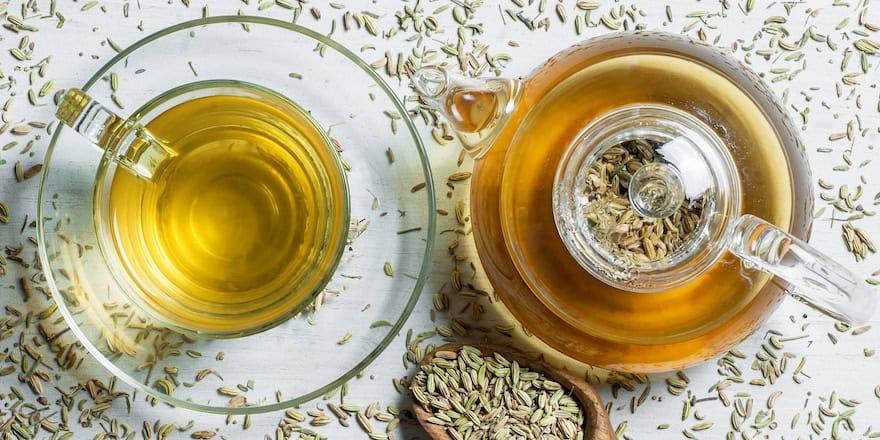
Like green anise, sweet fennel seeds have carminative properties recognized by the EMA. They are also very commonly used in cooking.
In addition to these properties, fennel seeds also have antispasmodic effects, so I also recommend them for intestinal pain and spasms.
I also recommend them for infant colic to breastfeeding mothers.
3. Caraway seeds
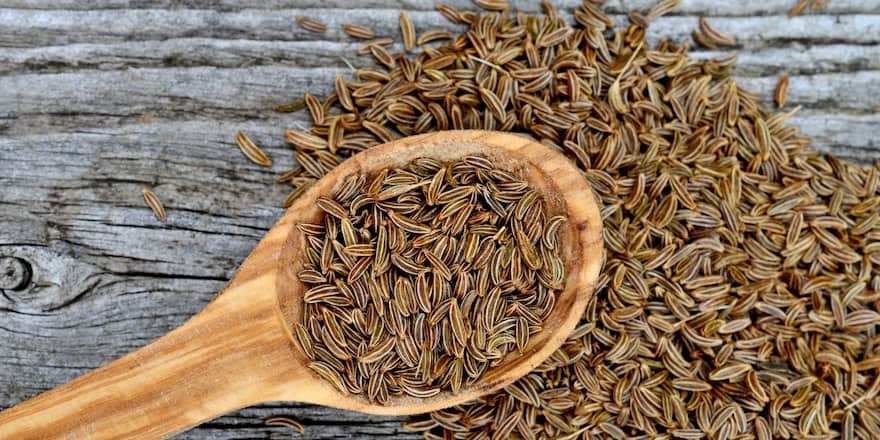
Another plant of the Apiaceae family used both in food and in Ayurvedic medicine, Indian medicine.
One of its main principles is healing through food. This is why it often recommends the use of spices, which are in fact powdered seeds.
The EMA also recognizes the carminative properties of caraway seeds, as shown by this monograph.
I could also mention other seeds from this family with similar properties: angelica, dill, cumin, coriander…
🎧 Listen to our podcast | Beneficial Spices
4. Peppermint leaves
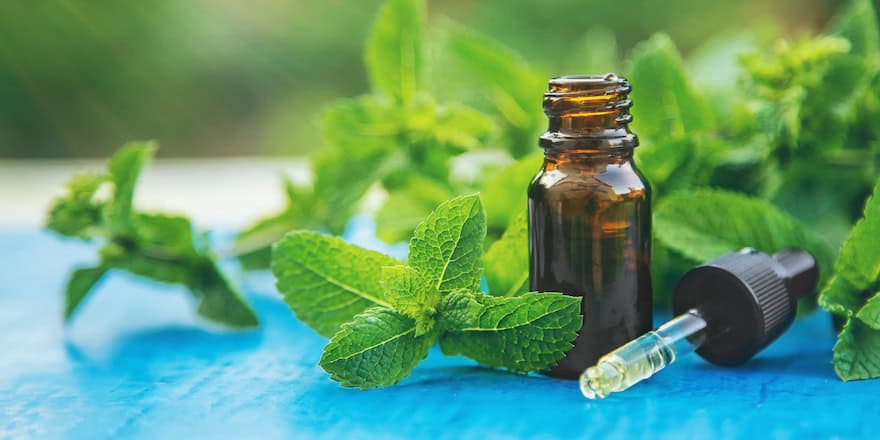
Whether it’s for its leaves or its essential oil, I recommend peppermint to help improve all symptoms of digestive disorders.
Its particularly pleasant menthol flavor makes it one of the go-to plants for gas, pain, intestinal spasms, irritable colon…
Numerous studies support its effectiveness. Its use for more than 30 years worldwide is recognized by the EMA, which highlights the carminative, anti-inflammatory and intestinal antispasmodic properties of peppermint leaves.
You will find all this information in this monograph.
A simple solution to implement in my opinion: a cup of peppermint leaf tea after each meal and your digestion will proceed smoothly.
5. Sage leaves
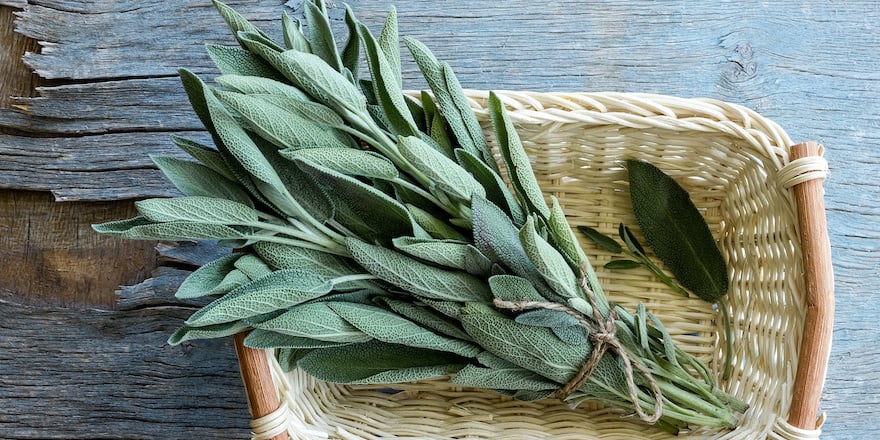
The leaves of sage (Salvia officinalis) are known for their hormone-regulating properties in women. They are also used to relieve mild digestive disorders such as heartburn and bloating, as recognized by the EMA.
I also find them useful for excessive sweating, when applied directly to the underarm skin or as sebum-regulating agents for oily skin.
Be careful, they are contraindicated in pregnant women, breastfeeding women, and women with a history of or a hormone-dependent cancer. This is the only plant on this list not permitted for pregnant women.
6. Activated charcoal
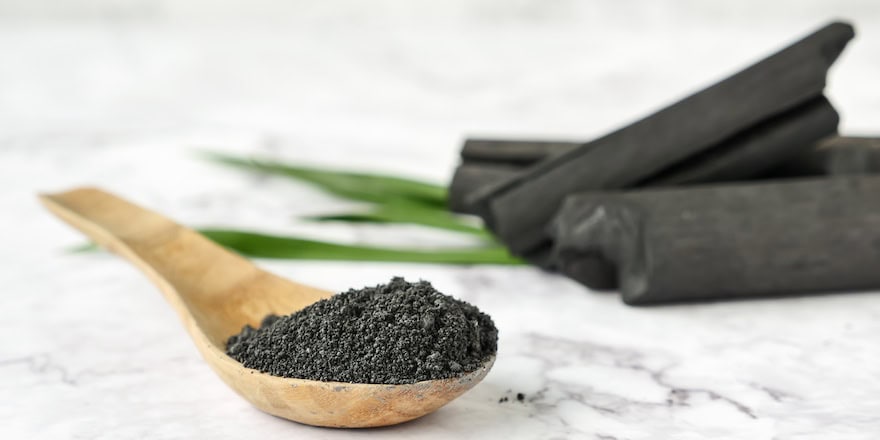
Activated charcoal is obtained by calcining wood away from air, then a second time in the presence of steam: this is activation. This process creates very numerous microscopic pores that greatly increase the contact surface between the charcoal and its surrounding medium.
Thus, a tablespoon of activated charcoal has a contact surface of… 5 km². The surface of activated charcoal attracts and retains many substances: toxins, gases, heavy metals, alkaloids, poisons, as well as medications. This phenomenon is called ‘adsorption’ (not absorption!).
The Vidal, the pharmacists’ dictionary, recognizes these properties: “[…] proposed to treat diarrhea, aerophagia, bloating, flatulence, bad breath, and certain forms of poisoning”.
However, be careful to respect the recommended doses: 800-1000 mg/day orally and to take it well apart from other medications and foods. I recommend waiting at least 2 hours after taking medication before consuming your activated charcoal.
Sources and scientific studies
European Union herbal monograph on Carum carvi L., fructus EMA/HMPC/715092/2013
European Union herbal monograph on Foeniculum vulgare Miller subsp. vulgare var. dulce (Mill.) Batt. & Trab., fructus, EMEA/HMPC/372839/2016
European Union herbal monograph on Mentha x piperita L., folium EMA/HMPC/572705/2014
European Union herbal monograph on Origanum majorana L., herba EMA/HMPC/166517/2015
Community herbal monograph on Pimpinella anisum L., fructus EMA/HMPC/321184/2012
European Union herbal monograph on Rosmarinus officinalis L., aetheroleum EMA/HMPC/513893/2021
European Union herbal monograph on Salvia officinalis L., folium EMA/HMPC/277152/2015



